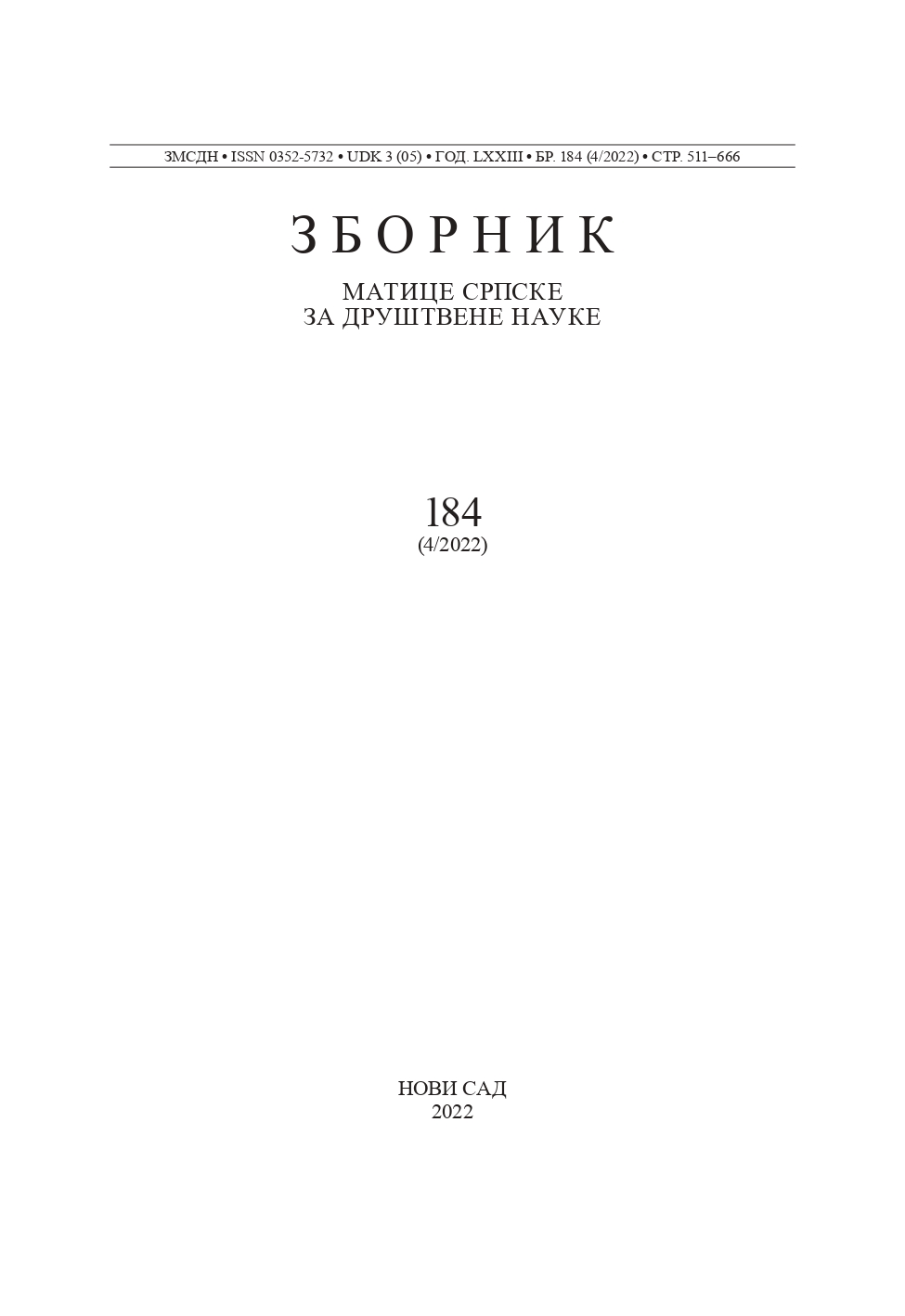НЕПОЗНАТА ПЕСМА МИЛОВАНА ЂИЛАСА „РАЗГОВОР ЊЕГОША И НЕЗНАНОГ ЈУНАКА”
AN UNKNOWN POEM BY MILOVAN ĐILAS: “A CONVERSATION BETWEEN NJEGOŠ AND AN UNKNOWN HERO”
Author(s): Nemanja AndrijaševićSubject(s): Language and Literature Studies, Studies of Literature, Serbian Literature
Published by: Матица српска
Keywords: Milovan Đilas; Priest Aleksa Todorović; Bishop Dr. Nikolaj Velimirović; Serbian Orthodox Church; Svetačnik (Svetachnick); Munich
Summary/Abstract: The correspondence between Bishop Dr. Nikolaj Velimirović and priest Aleksa Todorović contains an abundance of significant information. These two clerics worked tirelessly on promoting creativity within the Serbian Orthodox Church (SOC) in diaspora, helping to strengthen its organization and connections, advancing its publishing and missionary activities, enabling it to offer consolation to all, but especially to those who decided to live their lives “far from the warmth of their homeland”. One day, a daily church service in SOC in Munich had been attended by Drag. Janić, who gave a poem written in June 1955 by Milovan Đilas – one of the discarded officials of the Yugoslav communist government, to parish priest Aleksa. Even though in the years prior to writing this poem he denounced his Serbian identity and furthermore fought diligently against it – as he himself asserted later in his autobiographical writings, once he found himself on the other side of the revolutionary legacy that he dedicated himself to, “something happened” to him. That incomprehensible “something” inspired him to search for the voice of the Mystic from Lovćen within himself and express his doubts, suspicions and contemplations regarding the national question in a short poetic genre, through the voice of two great people: one famous and acknowledged, and the other unknown and acknowledged. This differentiation mirrors his understanding of both Njegoš and everything that is Serbian, which he mentions several times. One could argue that his lament over the fact that “the Cross has been removed from the Serbian coat of arms” expresses an incredibly difficult sadness of the author, while the ending words of his poem are even more dreadful, emphasising that “there are no more Serbs in Serbia”. Drying of the author`s ink did not, however, mark the end of his internal struggle – he decided to tear the paper on which he wrote the poem, only to later tape it back together. In the end, even though the author of this paper suggests that Đilas must have been acquainted with the fact that there were circles in Munich that gathered members of Zbor and supporters of Dimitrije Ljotić, and that at the same place there was a parish of the SOC with comprehensive publishing activity, that did not discourage him from making a peculiar move. He turned his song over to Serbian Church – against which he sinned a lot – and supported his decision with the desire that his poem be published, even though anonymously. In the light of all the abovementioned, the readers of “Serbian Religious Library Svetačnik”, i.e. “Svetačnik`s calendar with the catechetical booklet” (precise names of the publications in 1956) could get acquainted with this conversation and lament between Njegoš and the Unknown Hero over the suppressed and exiled Serbianhood, that is no longer to be found even in Serbia itself – as implicated by the author of the poem. Bishop Nikolaj must have been told about who the author of the poem was, as well as the exciting details that determined the destiny of this text written in decasyllabic style. Sixty five years later, everyone can read this poem and discern about both its value and that of its author, with affirmation of its authorship, and a review of its quite unusual destiny, which in the end was that of Milovan Đilas as well, and which followed him to his death.
Journal: Зборник Матице српске за друштвене науке
- Issue Year: 2022
- Issue No: 184
- Page Range: 635-652
- Page Count: 18
- Language: Serbian

